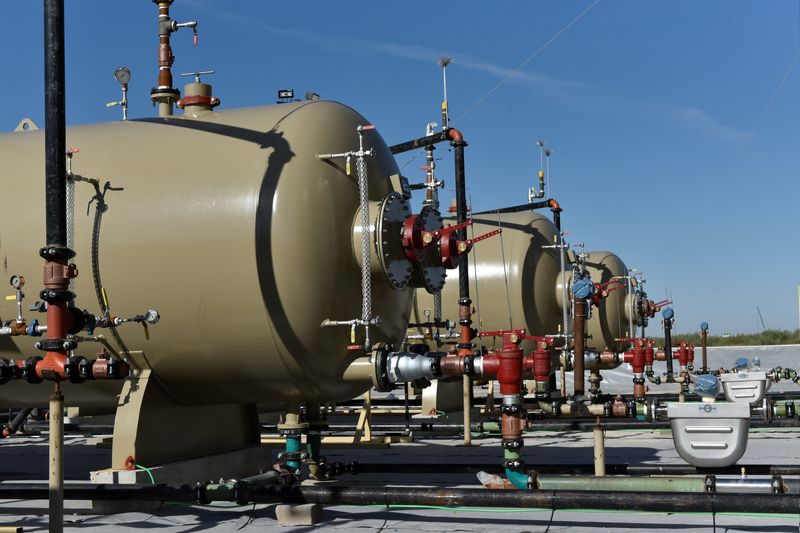Hedge funds cut NFLX, keep big bets on MSFT, AMZN, add NVDA
By Gina Lee
Investing.com – Oil was up on Friday morning in Asia, but ongoing COVID-19 lockdowns dampened fuel demand in China ahead of a long holiday. However, supply disruption fears as Western sanctions impact crude and product exports from Russia underpinned prices.
Brent oil futures rose 0.82% to $108.14 by 12:48 AM ET (4:48 AM GMT) after jumping 2.1% during the previous session. With the front-month June contract expiring later in the day, the more active July contract fell 30 cents to $106.96 a barrel. WTI futures gained 0.52% to $105.91 after settling 3.3% higher on Thursday.
Both Brent and WTI contracts are set to close the week and month higher, with WTI on track to post five consecutive months of gains. The increased likelihood that Germany will join other European Union member states in an embargo on Russian oil also gave the black liquid a boost.
Still, oil prices have been volatile as COVID-19 lockdowns in China continue despite the negative impact on the economy and global supply chains.
"With both full and partial lockdowns ramping up since March 2022, China's economic indicators have plunged further into the red. We now expect China's GDP to slow further in the second quarter," Wood Mackenzie Head of APAC Economics Yanting Zhou said in a note.
"Oil market volatility is set to continue, with the potential for more widespread and prolonged lockdowns into May and beyond, skewing the near-term risks for China's oil demand, and prices, to the downside."
On supplies, the Organization of the Petroleum Exporting Countries and allies (OPEC+) is unlikely to tweak its existing supply deal too much. The cartel will likely agree on another small output increase for June at its May 5 meeting, six OPEC+ sources told Reuters on Thursday.
However, Russia's oil production could fall by as much as 17% in 2022, according to Wednesday’s Ministry of Economic Development document seen by Reuters. Western sanctions imposed on Russia over its invasion of Ukraine on Feb. 24 have also impacted investments and exports.
The sanctions have also made it increasingly difficult for Russian ships to send oil to customers, with Exxon Mobil Corp (NYSE:XOM) recently declaring force majeure for its Sakhalin-1 operations and cutting output.
